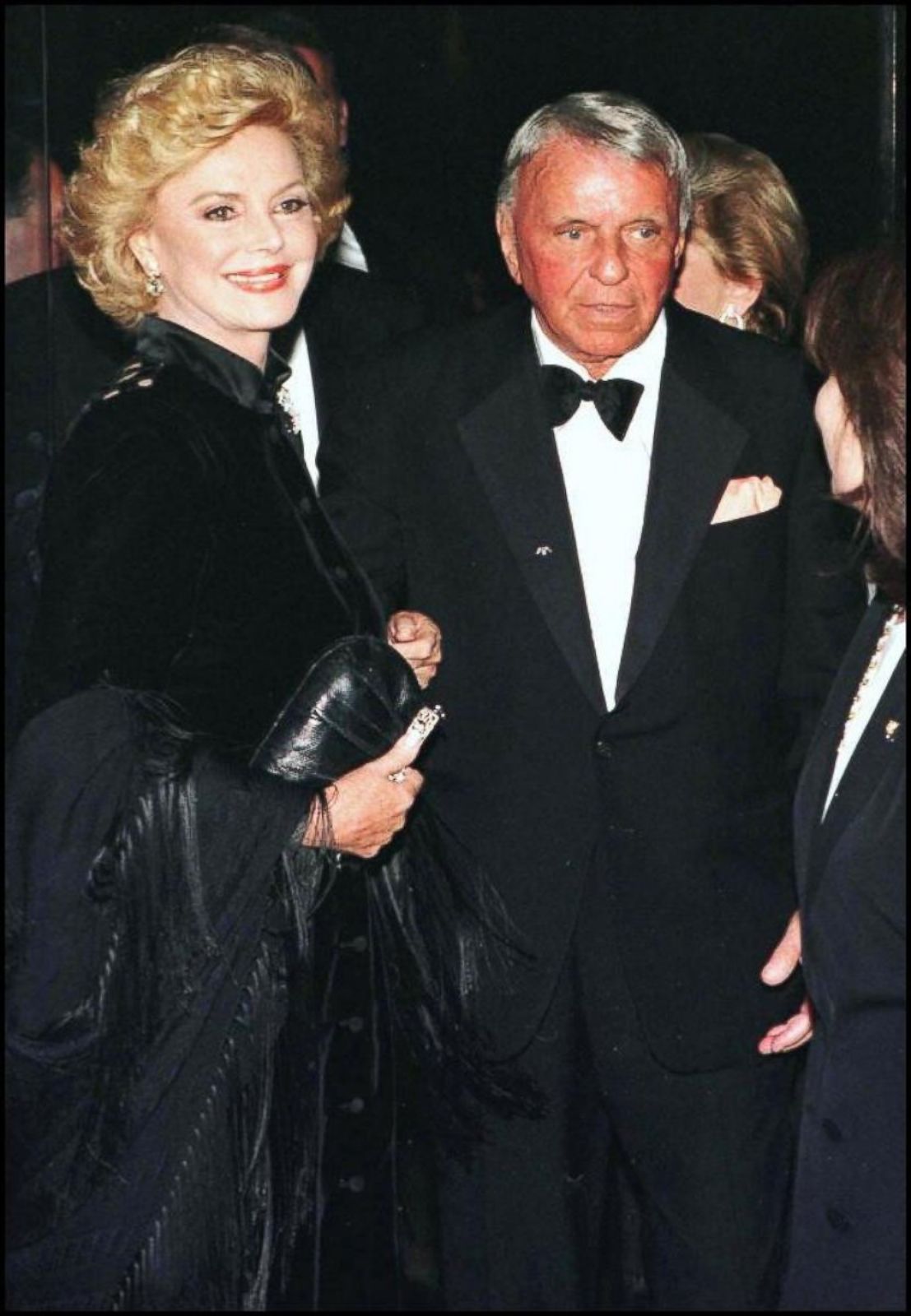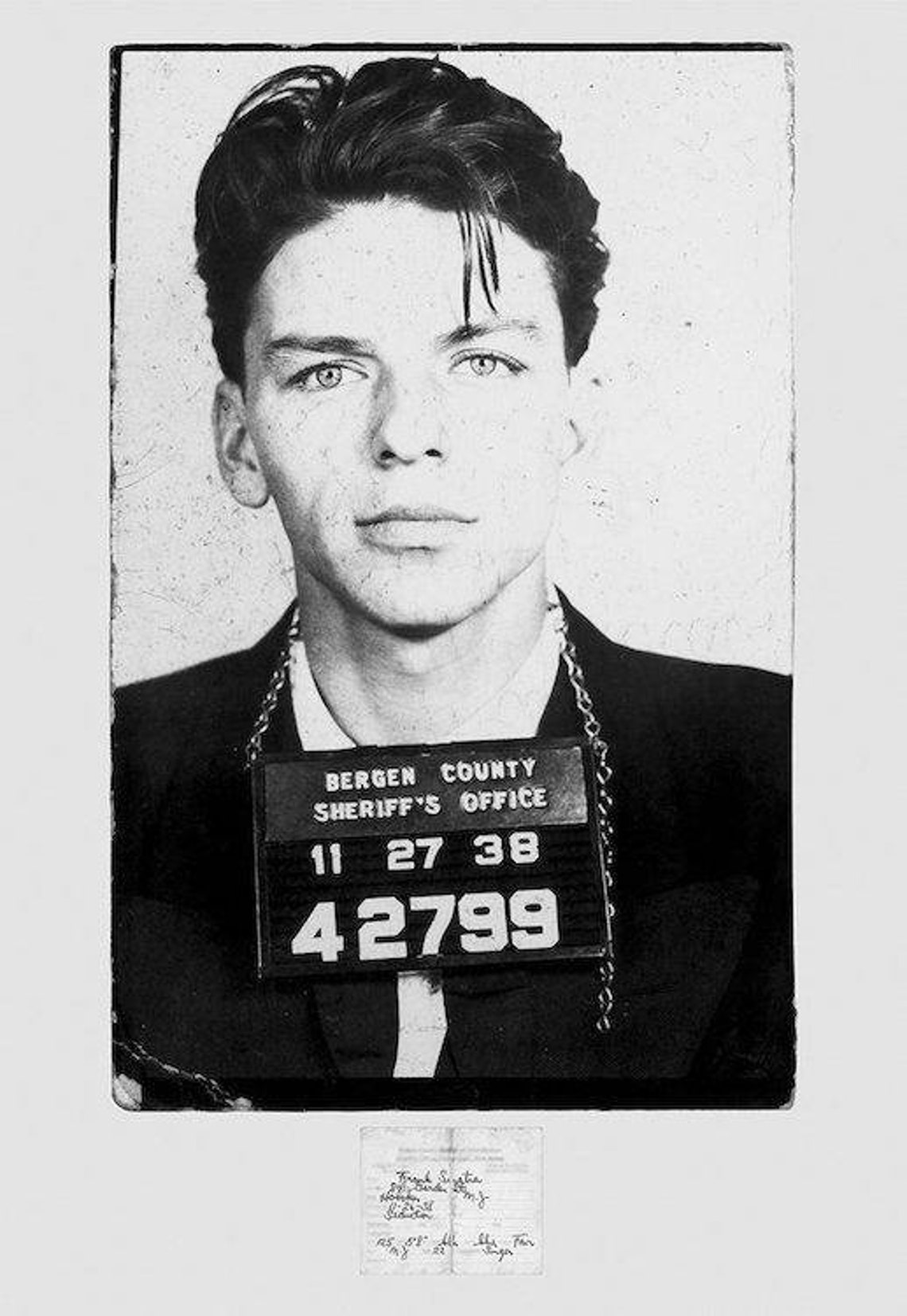Frank Sinatra, one of the most iconic figures in music history, was no stranger to controversy. But did you know that this legendary crooner actually spent time behind bars? Yes, you heard it right—Ol' Blue Eyes himself faced jail time. So, why did Frank Sinatra go to jail? Let’s dive into the juicy details of his legal entanglements and uncover the truth behind this fascinating chapter in his life. And don’t worry, we’ll make sure it’s all drama-free and fact-packed!
When it comes to Frank Sinatra, his life was a rollercoaster ride filled with both triumphs and tribulations. From his early days as a struggling singer to becoming a Hollywood icon, Sinatra’s journey wasn’t always smooth sailing. Along the way, he encountered more than just the spotlight—there were brushes with the law, including that infamous stint in jail. But what exactly happened? Was it a case of bad luck, or was there more to the story?
As we explore the reasons behind Frank Sinatra’s incarceration, we’ll also take a closer look at the man himself. From his early years to his rise to fame, Sinatra’s life was nothing short of extraordinary. But let’s not forget the controversies that often surrounded him. Whether it was his alleged ties to organized crime or his fiery temper, Sinatra was never one to shy away from the spotlight—even when it shone on his darker moments.
Read also:Connor Cruise Net Worth The Rising Stars Financial Journey
Table of Contents
- Frank Sinatra: A Brief Biography
- His Early Life and Rise to Fame
- Why Did Frank Sinatra Go to Jail?
- Alleged Ties to Organized Crime
- Other Controversial Incidents
- Media Coverage and Public Reaction
- Impact on Sinatra's Career
- Lessons Learned from Sinatra's Legal Troubles
- A Modern Perspective on Sinatra's Past
- Final Thoughts: Why Did Frank Sinatra Go to Jail?
Frank Sinatra: A Brief Biography
Before we get into the nitty-gritty of why Frank Sinatra went to jail, let’s take a moment to understand the man behind the legend. Born on December 12, 1915, in Hoboken, New Jersey, Francis Albert Sinatra grew up in a working-class Italian-American family. His mother, Dolly Sinatra, was a strong-willed woman who played a significant role in shaping young Frank’s personality.
Sinatra’s journey to fame began in the late 1930s when he joined the Harry James Orchestra. His smooth voice and charismatic stage presence quickly earned him a loyal fan base. By the early 1940s, he had become a household name, captivating audiences with hits like "All or Nothing at All" and "I'll Never Smile Again."
But fame came with its own set of challenges. Sinatra’s personal life was often tumultuous, marked by high-profile relationships, volatile temper, and numerous public feuds. Despite these challenges, he remained one of the most beloved entertainers of his time.
His Early Life and Rise to Fame
Frank Sinatra’s early years were far from glamorous. Growing up in Hoboken, he faced financial struggles and worked odd jobs to help support his family. It was during this time that he developed a passion for music, often singing at local events and bars. His big break came when he was discovered by bandleader Harry James, who invited him to join his orchestra.
Sinatra’s rise to fame was meteoric. In just a few years, he went from being an unknown singer to a national sensation. His performances were characterized by a unique blend of vulnerability and swagger, which resonated deeply with his fans. However, as his star rose, so did the scrutiny from the media and the public.
By the mid-1940s, Sinatra had become a cultural phenomenon. But his newfound fame also brought its share of controversies, including legal troubles that would eventually lead to his incarceration.
Read also:Jillian Mele Age Unveiling The Life And Journey Of A Rising Star
Why Did Frank Sinatra Go to Jail?
Now, let’s get to the heart of the matter: why did Frank Sinatra go to jail? Contrary to popular belief, Sinatra’s jail time wasn’t related to his alleged ties to organized crime. Instead, it stemmed from a legal dispute that arose during his tumultuous marriage to Ava Gardner.
In 1953, Sinatra and Gardner were involved in a highly publicized divorce battle. During the proceedings, Gardner accused Sinatra of failing to pay her alimony. The case escalated when Gardner filed a contempt of court charge against Sinatra, claiming he had willfully ignored court orders to pay her the agreed-upon amount.
Eventually, the court ruled in Gardner’s favor, and Sinatra was sentenced to a short stint in jail for contempt of court. While the sentence was brief, it marked a significant moment in Sinatra’s life, highlighting the personal and legal challenges he faced during this period.
Alleged Ties to Organized Crime
While Sinatra’s jail time was related to his divorce from Ava Gardner, rumors about his connections to organized crime persisted throughout his life. These allegations were fueled by his friendships with reputed mob figures like Sam Giancana and Joseph "Joe Bananas" Bonanno.
However, it’s important to note that no concrete evidence was ever presented to prove Sinatra’s involvement in criminal activities. Many historians and biographers believe that Sinatra’s relationships with mobsters were more about social connections than any illicit business dealings.
That being said, these rumors undoubtedly added to the intrigue surrounding Sinatra’s life, making him a figure of fascination for both the media and the public.
Other Controversial Incidents
Frank Sinatra’s life was rife with controversies, and his legal troubles extended beyond his divorce from Ava Gardner. Over the years, he was involved in several high-profile incidents that made headlines around the world.
- Confrontations with the Press: Sinatra was known for his fiery temper, and he often clashed with journalists who he felt were being too intrusive. In 1960, he famously attacked a photographer who was trying to take unauthorized pictures of him.
- Political Allegiances: Sinatra’s support for various political figures, including John F. Kennedy and Ronald Reagan, often drew criticism. His involvement in the Kennedy campaign, in particular, raised eyebrows due to his alleged ties to organized crime.
- Personal Relationships: Sinatra’s romantic relationships were often the subject of intense media scrutiny. His marriages to women like Mia Farrow and Barbara Marx were marked by both passion and conflict.
Despite these controversies, Sinatra remained a beloved figure in the entertainment industry, admired for his talent and resilience.
Media Coverage and Public Reaction
The media played a significant role in shaping public perception of Frank Sinatra’s legal troubles. During his divorce from Ava Gardner, newspapers and tabloids were filled with sensational stories about his alleged misdeeds. However, not everyone bought into the negative narrative.
Many of Sinatra’s fans remained loyal, viewing his legal battles as a testament to his authenticity and passion. They admired his willingness to stand up for himself, even if it meant facing the consequences.
Today, with the benefit of hindsight, we can see that much of the media coverage of Sinatra’s life was exaggerated or outright false. Nevertheless, it contributed to the legend of Ol' Blue Eyes, ensuring his place in the annals of entertainment history.
Impact on Sinatra's Career
While Frank Sinatra’s legal troubles undoubtedly affected his personal life, they had a relatively minimal impact on his career. In fact, some argue that the controversies surrounding him actually helped to cement his status as a cultural icon.
After his brief stint in jail, Sinatra continued to dominate the music and film industries. He won an Academy Award for his role in "From Here to Eternity" and released a string of successful albums, including the iconic "In the Wee Small Hours." His ability to bounce back from adversity only added to his mystique.
Moreover, Sinatra’s experiences with legal troubles and personal challenges informed his artistry. Many of his most famous songs reflect themes of heartbreak, resilience, and redemption—qualities that resonated deeply with his audience.
Lessons Learned from Sinatra's Legal Troubles
Frank Sinatra’s journey through legal and personal challenges offers valuable lessons for anyone facing similar difficulties. Here are a few key takeaways:
- Resilience: Sinatra’s ability to overcome setbacks and continue pursuing his dreams is a testament to the power of perseverance.
- Authenticity: Despite the controversies surrounding him, Sinatra remained true to himself, never compromising his values or beliefs.
- Forgiveness: Throughout his life, Sinatra demonstrated a willingness to forgive and move on from past mistakes, allowing him to focus on what truly mattered.
These lessons are as relevant today as they were during Sinatra’s lifetime, offering guidance for anyone navigating the complexities of modern life.
A Modern Perspective on Sinatra's Past
In today’s world, where celebrities are constantly under the microscope, Frank Sinatra’s legal troubles might seem like ancient history. However, his story remains relevant, offering insights into the challenges faced by public figures in the age of social media and 24/7 news cycles.
While the specifics of Sinatra’s legal battles may differ from those faced by modern celebrities, the underlying themes remain the same. Whether it’s dealing with media scrutiny, navigating personal relationships, or overcoming setbacks, Sinatra’s experiences provide a blueprint for success in the face of adversity.
As we reflect on Sinatra’s life and legacy, it’s clear that his impact on the entertainment industry extends far beyond his music. He was a trailblazer who broke barriers and challenged conventions, leaving an indelible mark on the world.
Final Thoughts: Why Did Frank Sinatra Go to Jail?
So, why did Frank Sinatra go to jail? In short, it was due to a legal dispute with his ex-wife, Ava Gardner, over alimony payments. While this incident was certainly a low point in Sinatra’s life, it was far from the defining moment of his career.
Throughout his life, Frank Sinatra faced numerous challenges, both personal and professional. Yet, he remained a symbol of resilience, talent, and authenticity. His music continues to inspire generations, and his legacy endures as a testament to the power of art and perseverance.
As you reflect on Sinatra’s life, take a moment to appreciate the complexities of his journey. And if you’re feeling inspired, why not share this article with a friend or leave a comment below? After all, Ol' Blue Eyes would want us to keep the conversation going!
References
For those interested in delving deeper into Frank Sinatra’s life and career, here are some recommended sources:
- “Sinatra: The Life” by James Kaplan
- “Frank: The Voice” by James Kaplan
- “Frank Sinatra Has a Cold” by Gay Talese

